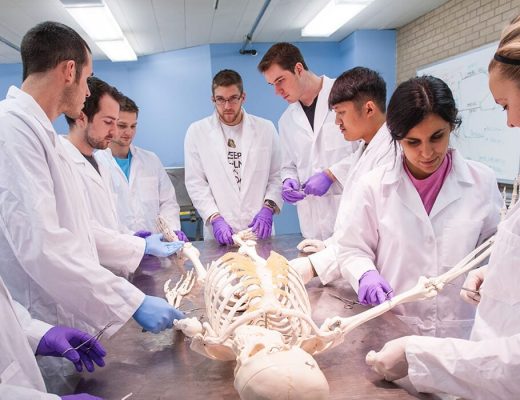You are a young brand new doctor, ready to serve your community. You’re confident, passionate, and excited to be working in the “real” world. Your first patient walks in and states, “that’s the doctor?” with a sound of disbelief and distaste. Your confidence starts to leak out of you like a slow leak in a tire. You wonder, “if I change my hair color would that help, do I need different clothes, maybe it’s my height…do I need heels? How do I conceal my age?” This happens to you in small ways throughout the following year or two to come. Some of these ageist digs will be obvious; others will be small and inconspicuous. Why weren’t you prepared for this in graduate school? You’ve had eight years of education; you’re a doctor, why is your confidence gone? This starts to manifest in your patient numbers as they begin to sense you have little confidence in your own abilities and desperation to develop your first caseload. What can be done to prevent this loss of confidence before it even begins? Protection of your confidence and self-worth is extremely important in those first couple of years of practice.
Here are a few ways to negate those feelings of self-doubt and demonstrate to your patients that age is simply a number.
- Talk with assurance and tenacity. Introduce yourself as a doctor, for example, “Hi, I’m doctor ______ come with me and we’ll get started!” Don’t let your voice waver, and if health policies permit follow with a handshake, and make eye contact.
- Walk and stand with the proper posture. How you stand truly has a way of representing your confidence and authority. Not only that, research has discovered that proper posture is connected with feelings of higher self-esteem and less social fear. So shoulders back, chest up, and look straight ahead!
- Do not let those comments break your regular workflow of the office. Keep moving as though that comment was not of any significance. Remember, you are a smart and successful doctor that has other people to treat as well! Acknowledge the comment, state that “yes” you are the doctor, and have them follow you to the consultation room. If they refuse don’t push it, let them make their own decisions and remember this is their loss, not yours. Most of the time they will sense your authority and confidence in how you handle the situation. They will at least have some curiosity at this point as to what you have to offer them, from there you will win them over with your intellectual expertise.
- Have your doctorate displayed on your wall, in an easy place for the patient to see during the consultation.
- Be concise with your questions and move strategically through your consult. Explain any correlations with their history and other orthopedic or neurologic findings to their chief complaint.
- Give them realistic expectations for their treatment program and what to expect. Do not sugar coat things to make your patient like you and want to stay for treatment because success will be easy. They will smell your inauthenticity from a mile away.
- Try to stay away from the words “I think” and “maybe”. If you do not have the answer to something, say that you are going to look into it or that you are not familiar with. The patient will appreciate your honesty and this builds a sense of trust.
- Be authentic. If you’re a little louder, have a sense of humor, like to wear bright colors; don’t change yourself to impress someone else! The same goes if you’re quiet, calm, and like neutrals. Be true to yourself, being genuine also boosts your confidence.
- Seek out mentorship and speak with other doctors in the same position as you. It is beneficial to communicate with others about shared experiences along with different ways to approach any issues at hand.
- Consider these patients a challenge. Get excited about the thought of changing their perspective and how they feel about your abilities. The look on their face when you surprise them in this way is priceless.
Over time, this checklist will come naturally to you, and you will be teeming with confidence. You won’t need to remind yourself of your capabilities and knowledge you possess. It is normal to face some self-doubt in the beginning, but this should be dealt with from the very start. Not left as a slow leak of confidence and your start to see your caseload dwindle. As new doctors, we should be prepared to face these challenges and discrimination, but we should also be prepared to handle them.







No Comments